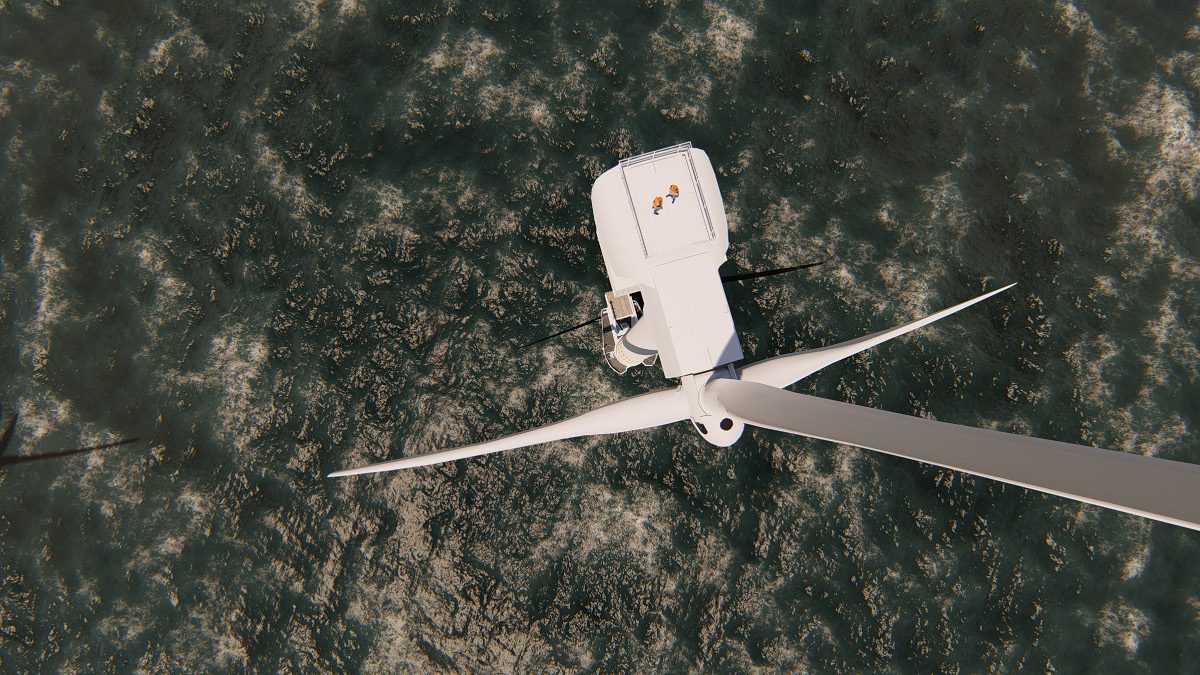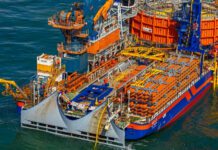
G+ members – comprising most of the biggest offshore wind operators in the world – have reported a record 44.6 million hours were worked in 2022, an increase of 38% on the previous year.
Members of G+, the health and safety organisation for the offshore wind sector, based at the Energy Institute (EI), invested billions in new offshore wind projects last year, with crucial safety metrics – such as the total recordable injury rate (TRIR) and lost time injury frequency (LTIF) – displaying a downward trajectory in 2022, demonstrating sustained progress since reporting began in 2013.
The TRIR, measuring the number of injuries per million hours worked, fell from 3.28 in 2021 to 2.82 in 2022 (down from 5.52 in 2016). Similarly, the LTIF, measuring the frequency of injuries resulting in lost work time, decreased from 1.55 in 2021 to 1.03 in 2022 (down from 1.98 in 2016).
For the tenth year in a row, there were no fatalities recorded across G+ member sites in Europe, North America and Asia Pacific. Of note is that compared with the 2021 data, there was a 69% decrease in the number of emergency response and medical evacuation incidents, from 62 in 2021 to 19 in 2022, which given the increase in hours reported is a significant improvement.
While this progress is welcome, the report also highlights that more must still be done.
A total of 225 high potential incidents were report in 2022, which is a 10% increase on 2021 levels. There was also an increase in the number of restricted work day injuries in 2022, with 36 reported cases, and the number of medical treatment injuries increased by 10 cases – all highlighting the need for constant vigilance and continuous improvement.
Commenting on the report, G+ Chair Jakob Nielsen said:
“You can’t improve what you don’t measure, which is why G+ plays such an indispensable role in reporting, monitoring and steering industry to make our sector as safe as it can possibly be.
“This increasingly vital industry provides hundreds of thousands of clean energy jobs around the world and is growing fast. What’s non-negotiable for us as operators is to grow in a way that protects our people in often hazardous environments with the highest safety standards.
“I’m pleased to see genuine progress as a result of the work G+ and its members are undertaking – but we are under no illusion as to the importance of constant vigilance to uphold and improve safety performance.”
Dr Nick Wayth CEng FEI FIMechE, Energy Institute Chief Executive, commented:
“Offshore wind continues to be a global success story, beating generation targets and driving us closer to a fully decarbonised energy system.
“Complacency causes injuries, which is why G+’s reporting role is so vital in embedding a culture of continuous improvement through its work programme.”
Key figures from the 2022 Incident Data report are:
868 reported incidents and injuries, distributed in the following areas:
- 325 incidents occurred on a vessel
- 298 incidents occurred in a turbine
- 185 incidents occurred onshore
The incidents include:
- 0 fatalities
- 46 total lost work day injuries
- 19 incidents resulting in emergency response and medical evacuation
- 36 restricted workday injuries
- 44 medical treatment injuries
The top three work process incidents are:
- 119 incidents during lifting operations
- 67 incidents during manual handling
- 58 incidents during access/egress
Now in its tenth year and based at the Energy Institute, G+ brings together the key players across the international offshore wind industry to drive the highest safety standards through incident data reporting, good practice guidance, learning from incidents, and safe by design workshops.
G+ comprises 12 leading operators and turbine manufacturers – bp, Corio Generation, EDF Renewables, Equinor, Iberdrola, Northland Power Inc., Ocean Winds, Ørsted, RWE, Siemens Gamesa, SSE, Vattenfall – as well as many associate members.
With expanding operations in the Asia Pacific and North American regions, G+ continues to utilise the lessons learned from high potential incidents that occurred during the early stages of offshore wind in Europe to develop good practice guidelines, in multiple languages, to support safe offshore wind operations in these regions.
As part of the drive to ensure lessons learned from these incidents are made freely available, G+ is continuing to make safety incident lessons available through Toolbox, the Energy Institute’s free-to-use incident lessons platform.







